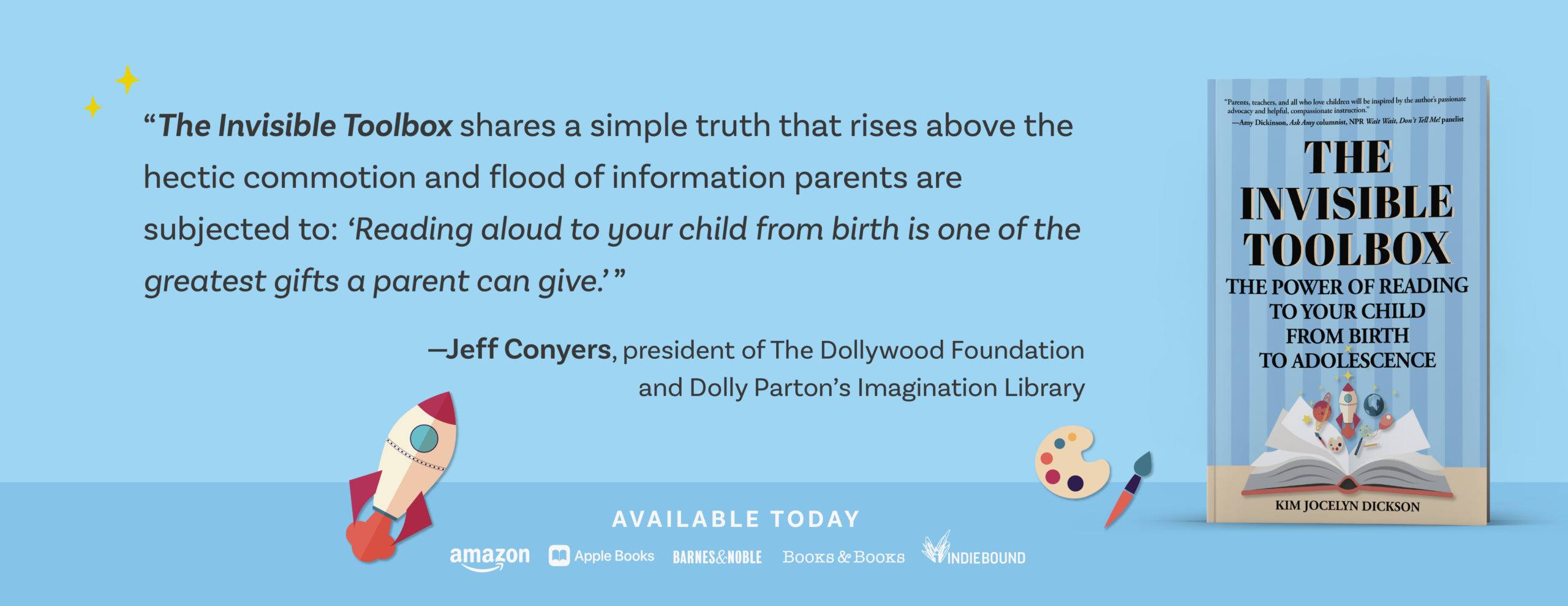A Virtual Vist to Pigeon Forge
Imagine this: a high quality picture book arrives in your mailbox each month with your child’s name on it, from the time you bring them home from the hospital until they begin kindergarten—absolutely free.
That’s exactly what Dolly Parton’s Imagination Library is in the business of doing with the help of the Dollywood Foundation and countless affiliates around the world. To date, Dolly’s Library reaches several continents and has given away over 160 million books.
Reaching children with books during those critical 0-5 years when 90% of brain growth occurs has a lasting impact on a child’s ability to thrive.
This fact and the subsequent outcomes of doing so—or not—that I’ve observed in children over a long teaching career are what motivated me to write The Invisible Toolbox: The Power of Reading to Your Child from Birth to Adolescence.
An Exciting Invitation
So it was my absolute pleasure and honor to be invited to present at the Imagination Library’s recent Homecoming. My topic: what happens on the other side of kindergarten when a child has been read to consistently.
This biennial event usually gathers hundreds of Imagination Library affiliates from around the world in Dolly’s hometown of Pigeon Forge, Tennessee. This year it took place virtually due to Covid-19.
The Imagination Library is an organization for which I could not have greater respect and admiration.
Its mission is simple. Give parents an essential tool they need—books—so that they can share the joy of reading, fill their child’s invisible toolbox, and enable them to be kindergarten-ready.
Dolly Parton’s Dream
The genius of the program is that the book comes directly to the child. Their name is on the gift, and it arrives without fail in their mailbox each month. By the time a child begins kindergarten they’ve accumulated their own personal library.
If you haven’t seen it yet, check out The Library That Dolly Built: Celebrating the People Who Made Dolly’s Dream Come True, now available on Amazon Prime, Apple TV, Google Play, and Cable on Demand.
You will be amazed and inspired by the story of how the Imagination Library grew from Dolly’s dream of helping the Appalachian children in her hometown of Tennessee into a worldwide enterprise for all children.
It’s a wholly uplifting story that will fill you with hope and remind you of what’s possible when people of good faith collaborate on a mission as important as this one.
Just be sure to bring your kleenex. You may need it.













